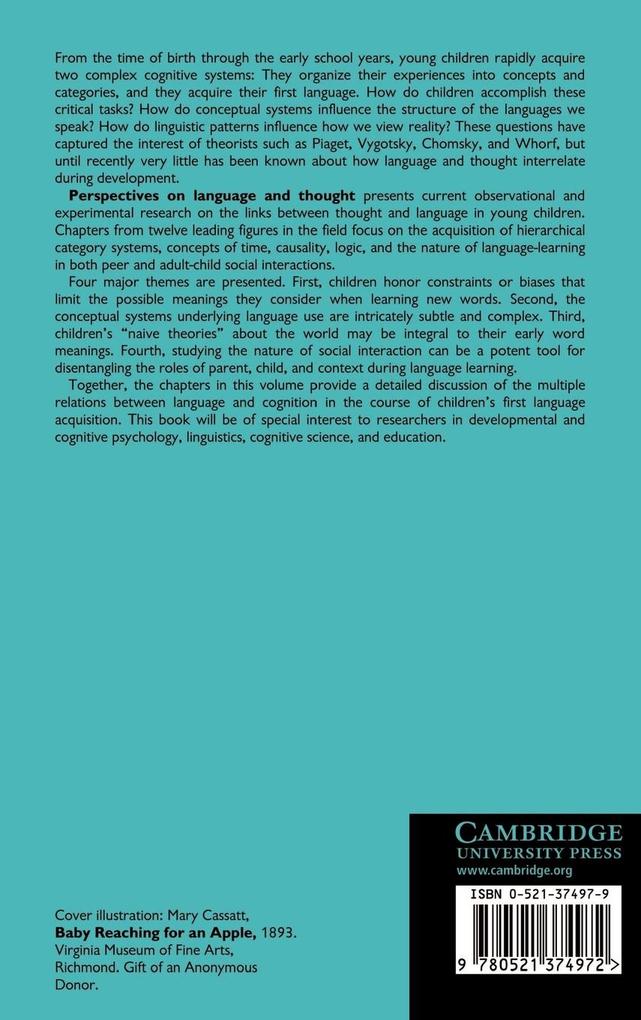This book presents current observational and experimental research on the links between thought and language in such children.
Inhaltsverzeichnis
Part I. Introduction: 1. Perspectives on thought and language: traditional and contemporary views James P. Byrnes and Susan A. Gelman; Part II. Relations Between Word Learning and Categorization: 2. Acquisitional principles in lexical development Eve V. Clark; 3. The whole-object, taxonomic, and mutual exclusivity assumptions as initial constraints on word meanings Ellen M. Markman; 4. Convergences between semantic and conceptual organization in the preschool years Sandra R. Waxman; 5. Language and categorization: the acquisition of natural kind terms Susan A. Gelman and John D. Coley; 6. Theories, concepts, and the acquisition of word meaning Frank C. Keil; Part III. Logical, Causal, and Temporal Expressions: 7. Language and the career of similarity Dedre Gentner and Mary Jo Rattermann; 8. The matter of time: interdependencies between language and thought in development Katherine Nelson; 9. Constraints on the acquisition of English modals Marilyn Shatz and Sharon A. Wilcox; 10. Acquisition and development of if and because: conceptual and linguistic aspects James P. Byrnes; Part IV. The Role of Social Interaction: 11. The language of thinking: metacognitive and conditional words Ellin Kofsky Scholnick and William S. Hall; 12. Parent-child collaboration in young children's understanding of category hierarchies Maureen A. Callanan; 13. Beginning to talk with peers: the roles of setting and knowledge Lucia French, Marylou Boynton and Rosemary Hodges.











